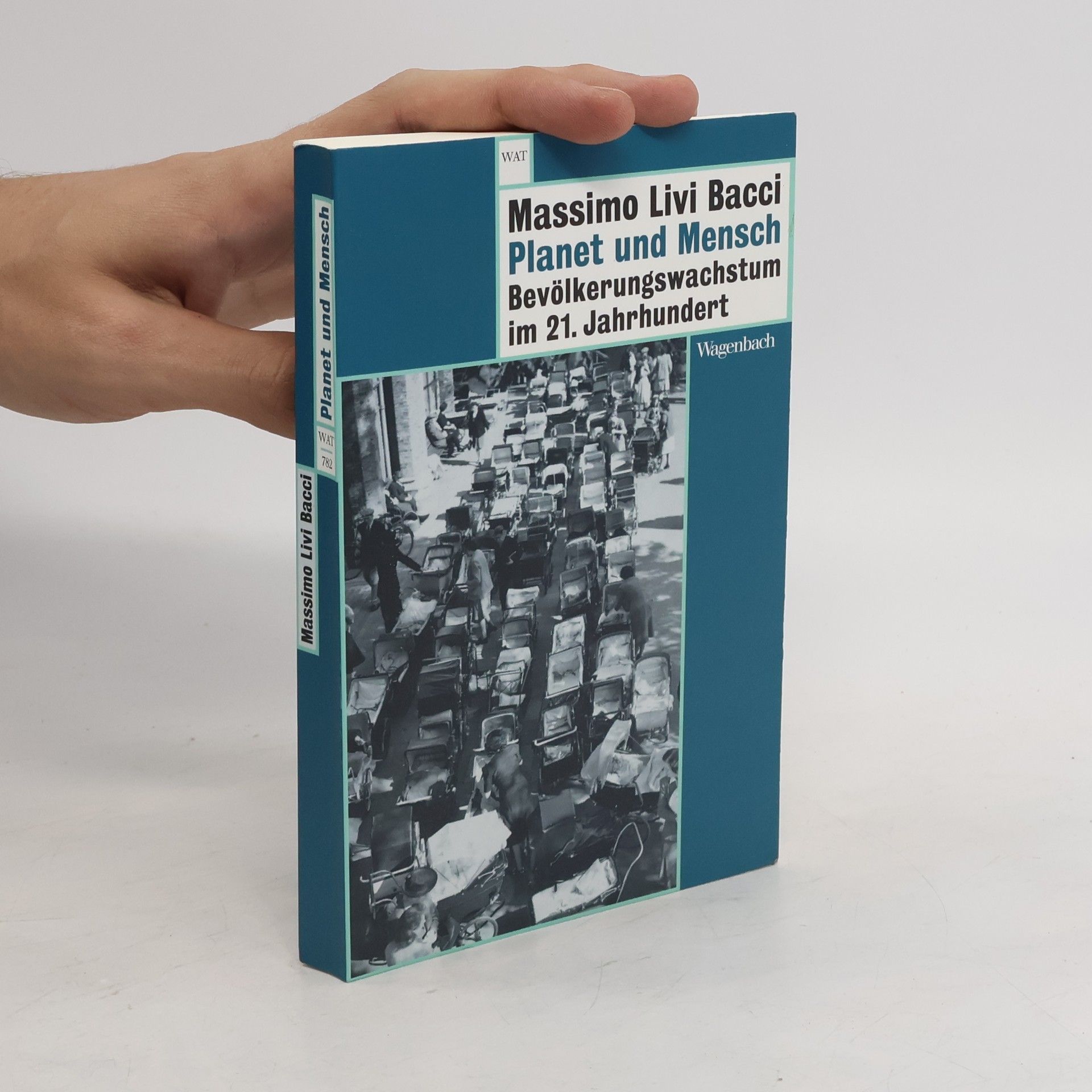The essay explores the intricate connections between subsistence, mortality, and population through biological, social, and cultural mechanisms. It delves into how these factors interact and influence each other, providing insights into the dynamics of human societies and their survival strategies.
Massimo Livi Bacci Livres






Over Land and Sea
- 164pages
- 6 heures de lecture
Human history has always been marked by the movement of people and populations, from the earliest movement of human beings out of Africa to the flows of migrants and refugees today. While mobility is intrinsic to human nature, migration is not always voluntary: it can be the result of free choice, but it can also be forced in varying ways and to varying degrees. In this book, Massimo Livi Bacci examines migrations past and present with reference to the degree of free choice behind them. The degree can be minimal, as when migration is compelled by war, natural disaster or the actions of a tyrant, but in other cases the decision to migrate can be fully voluntary and deliberate, as when individuals and groups weigh up their options and decide whether to move. Between these two poles there is a continuum of different situations, with gradually increasing or decreasing degrees of freedom and choice. Livi Bacci explores these variations by focusing on fifteen stories of migration from Antiquity to the present day, ranging from the Greek colonization of the Eastern Mediterranean in the Ancient world to the great migration of millions of people from Europe to the Americas in the nineteenth and twentieth centuries. Taken together, these stories of human movement shed fresh light on the millennia-long history of migration and its motivations, causes and consequences.
Europa und seine Menschen
- 278pages
- 10 heures de lecture
Es ist enger geworden auf dem Planeten. In zehntausend Jahren ihrer Geschichte hat die Menschheit die Erde um das Tausendfache dichter besiedelt. In den nächsten fünfzig Jahren wird die Weltbevölkerung weiter bis auf zehn Milliarden Menschen anwachsen. Brauchte Magellans Weltumseglung um 1520 noch 1.125 Reisetage, gelangen wir im Flugzeug heute in einem einzigen Tag rund um die Welt. Tausendfach zahlreicher in einem Raum, der tausendmal so schnell durchquert werden kann – was bedeutet diese Entwicklung für das 21. Jahrhundert? Massimo Livi Bacci erörtert das Bevölkerungswachstum auf dem Planeten, die gewaltigen Unterschiede zwischen den Ländern, Regionen und Kontinenten und die komplexen Beziehungen zwischen Demographie und Politik. Im Unterschied zu vielen Weltuntergangspropheten ist seine Prognose optimistisch: im Vertrauen darauf, dass Menschen durch Migration und Mobilität sowie durch Kommunikation enger zusammenrücken und ihre weltweiten Beziehungen friedlich und zukunftsgewandt gestalten.
Den Ort zu wechseln, anderswo zu leben, in einer anderen Gegend als der angestammten heimisch zu werden, sichert dem Menschen seit seinen frühesten Entwicklungsstufen das Überleben. Im Unterschied zu den Migrationsströmen der vergangenen zweitausend Jahre geschieht Migration allerdings heute oft nicht mehr legal, sondern illegal. Migranten werden als Bedrohung empfunden und kriminalisiert. Dabei brauchen wir Einwanderung nach Europa dringender denn je, und zwar in allen Lebensbereichen. Massimo Livi Bacci ist einer der führenden Experten für Bevölkerungswanderung und Demographie. Er beginnt seine Geschichte der Migration in der Ur- und Frühzeit, beschreibt die Besiedlungsgeschichte des Mittelalters ebenso wie die großen transozeanischen Migrationsströme der Neuzeit und analysiert die Gegenwart mit einer Fülle aktueller Zahlen und Fakten. Livi Baccis Geschichte der Migration umfasst damit als einzige die gesamte Menschheitsentwicklung. Aber der Autor denkt noch weiter und wagt einen Ausblick ins Jahr 2050: Wenn wir das hohe Lebensniveau in Europa halten wollen, müssen wir Einwanderung erleichtern und befördern.